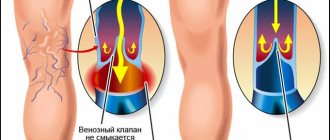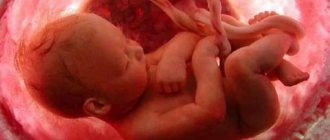Craving a juicy orange in the middle of the night or enjoying the smell of freshly painted walls is normal for many pregnant women. The main thing is that this is a one-time need, and not a constant desire.
Chocolate with sausage, oranges with herring, beer with ice cream - pregnant women often talk about such strange taste desires. Endocrinologist of the highest category Inna Weizman told Tolk how the hormonal levels of a pregnant woman change, whether it is necessary to “eat for two” and what gourmet food preferences indicate.
July 10, 8:04
Altai Territory has gained weight: why is the region regularly ranked among the fattest?
Good detection rate, low income, neurotic conditions: what else contributes to the leadership of the Altai Territory in the obesity ranking
Sausage and chocolate
Craving a juicy orange in the middle of the night or enjoying the smell of freshly painted walls is normal for many pregnant women. Strange desires and taste combinations are primarily associated, according to the endocrinologist, with a lack of certain microelements.
“If a woman lacks iron, she may like the smell of paint or start eating plaster. If there is not enough vitamin C, she attacks citrus fruits. Such eating excesses may occur, but they should not become a habit. If the need is one-time, it is better to satisfy it, but this should not be included in the system.
It is better, Weizman believes, to get tested and find out what the body is missing, and then take a vitamin complex recommended by a doctor.
Cravings for salty foods before menstruation and more
If you want something salty before your period, this does not mean that the girl is pregnant. It's all about progesterone, again. When the egg matures, hormone levels rise and thicken the epithelium in the uterus. The fertilized egg will be attached to it. If fertilization does not occur, progesterone levels drop and symptoms of premenstrual syndrome appear. Therefore, the passion for salty foods usually manifests itself during the period of ovulation, in the middle of the menstrual cycle.
Why do you crave salty foods if you are not pregnant?
- thyroid diseases;
- accelerated metabolism;
- lack of calcium, sodium, iodine;
- infectious diseases of the genitourinary system;
- chronic stress.
A thirst for salt is a common occurrence for those whose workplaces are exposed to high temperatures. When you sweat quickly, your body also quickly loses salt. The same applies to holidays in hot countries. Cravings can be caused by physical activity.
Why do pregnant women eat a lot of sweets?
The second trimester is a time of active growth for the baby. In order for him to gain weight, growth hormones are activated. During the same period, sensitivity to insulin decreases in the mother’s body. Thanks to this, glucose flows freely to the fetus, and it grows.
But if during this period the expectant mother overeats sweets, she may develop gestational diabetes. To prevent it, the doctor advises limiting the amount of fast carbohydrates in the diet from the 15-16th week. This is especially recommended for obese women over 30 and those who have family members with diabetes.
Why does an expectant mother want salty foods during pregnancy?
What a joy it is to be carrying a baby. Feel his movements and realize that you will soon become a loving mother! And you’ve probably noticed an increased craving for salty foods. And now you’re asking yourself: “Is it normal if I eat salty foods?”, “What foods definitely won’t harm my baby?”
It would seem that there is nothing special about pickled tomatoes and cucumbers, herring and caviar, but where is the guarantee that all this will not harm the baby? Why do you crave salty foods so much during pregnancy? After all, salt, by its nature, carries not only taste, but also unpleasant consequences, albeit in case of excessive use.
No need to eat for two
February 26, 8:56
Is it possible to eat strawberries in February and will they be beneficial?
The endocrinologist spoke about exotic foods and their effect on the body
Pregnancy, especially its first trimester, does not require a radical change in diet, says Inna Weizman. Nutrition should be complete, but caloric intake should be increased quite a bit, by about 400 kcal. As a result, in the first trimester you need to consume about 2-2.4 thousand kcal per day, depending on your weight. In this case, you need to eat at least 100 grams of protein per day. This is about 180 grams of meat or fish and half a liter of dairy (or fermented milk) products.
“You don’t have to eat for two, it’s wrong. In the first trimester, the fetus grows at the cellular level, so it is important not how much we eat, but what. The most important thing is to saturate the body with vitamins and microelements,” advises the endocrinologist.
Vitamin E must be present in the diet; it is even called the “pregnancy vitamin”. It can be obtained from vegetable oils. Vitamin D is also important; it is found, for example, in egg yolk. Zinc is especially important among microelements; it is abundant in seafood.
Is it possible to eat salted and dried fish?
Any fish for a pregnant woman should be selected based on its degree of salinity. Give preference to lightly salted products. Red fish is the most useful. Among pregnant women, herring is also a priority. It is more enriched with salt, but at the same time it is extremely healthy. Protein, ergocalciferol, calcium and phosphorus have a beneficial effect on the body. It is enough to limit yourself in quantity, and there will be no harm.
There is also a common question about dried fish. During pregnancy, a product can be dangerous only if its quality is questionable. In other cases, it will only become a source of omega-3 polyunsaturated fatty acid, which is not synthesized independently in our body.
Attention! Eating salty foods should always be diluted with unsalted foods.
What to do to prevent teeth from falling out
From the second trimester, the diet should be increased to 2.5-2.7 thousand kcal. During this period, it is especially important to eat protein - it is a building material for the fetus. Meat, fish and dairy products should be on the table every day.
The two micronutrients primarily required by the developing fetus in the second trimester are iron and calcium.
“If a woman does not eat dairy products, the growing fetus will begin to take calcium from the mother’s bones. In essence, a child is an egoist, and if he is not given something, he will definitely take everything he needs from his mother’s body. This can cause bones to become brittle and teeth to deteriorate. Therefore, a nutritious diet with a sufficient amount of calcium is the key to the health of the expectant mother,” explains Weizman.
The second trimester also requires iron - the fetus develops blood circulation. It is worth including pomegranates, apples, and liver in your diet, the doctor recommends.
About cravings for salty foods during pregnancy
Pregnant women crave salty foods, which is most pronounced in the first trimester. If 6 g of salt per day is enough for an ordinary person to satisfy the natural needs of the body, then a pregnant woman wants to replenish her sodium reserves by any means. Often this ends not even with pickled cucumbers, but with over-salted fish and canned food.
The opinions of doctors are divided: some do not see this as a problem, others express concern. It is necessary to build on the individual characteristics of each pregnant woman and the “healthy” salt norm for them. Let's look at why pregnant women crave salty foods and why listen to their body.
How much weight should you gain
In the third trimester, we leave the caloric intake the same as in the second: 2.5-2.7 thousand kcal per day. While focusing on proteins, you shouldn’t forget about fats either. The norm during this period is about 85 grams per day. Half should come from animals (butter, for example), half from vegetables.
Now doctors are moving away from the concept of ideal weight gain during pregnancy. Previously, it was believed that this figure fluctuates around 10 kg. In fact, the gain greatly depends on the initial weight, the doctor explains. If there was a weight deficit before pregnancy, a woman can gain 12 or 14 kg. If you were obese, you may gain only 2-3 kg, and this is also the norm.
Salty foods
Some products on the menu for pregnant women are not recommended. This applies to various pickles containing vinegar, smoked meats, unnatural products, chips and the like. What you can eat if you want something salty:
- Pickled cucumbers and tomatoes during pregnancy. Not the best food for a pregnant woman, but 2 cucumbers or tomatoes are allowed in the weekly menu. They provoke swelling and do not bring anything good to the body.
- Pickled cabbage. If you really want it, salted cabbage is acceptable during pregnancy. You can make a salad from this product (first rinse well with cold running water to remove the brine) with olive oil.
- Salty fish. Lightly salted red fish during pregnancy is an excellent source of sodium. It's worth overeating, but a couple of pieces will be a great addition to lunch.
- Mushrooms. It is strictly forbidden to eat salted mushrooms from your grandmother’s cellar during pregnancy. This already heavy food becomes a hundred times more harmful after pickling, especially for the body of a pregnant woman.
This is not the time to conquer mountains
July 02, 7:27
A Barnaul doctor explained how hormones reduce libido and cause early menopause
What role does heredity play in the development of diabetes, and what role does habits play, at what age can menopause begin and how to “keep” testosterone at the same level
Pregnancy is a huge hormonal load on the body, says the doctor. During this period, the woman even develops a new organ that actively produces hormones - the placenta. The psycho-emotional state, which is quite unstable during this period, directly depends on hormones.
“In the first trimester, a woman becomes drowsy, weak, and withdraws into herself.” This is due to the hormone progesterone. If it is not enough, a miscarriage or frozen pregnancy may occur. Progesterone seems to encourage a woman to “go away” into pregnancy, to calm down, to stop. If this does not happen and the expectant mother is very active, including emotionally, this can negatively affect the development of the fetus. Pregnancy is not the time when you need to conquer mountains,” explains the endocrinologist.
Pregnancy and bulimia
The expectant mother's body has special requirements; it simply needs proper nutrition during pregnancy and peace of mind.
During pregnancy, inducing vomiting means depriving the child of essential vitamins and minerals, which can subsequently affect the development of the baby. Bulimia during pregnancy is especially dangerous. There are cases where induced vomiting caused such harm to the body of a pregnant woman that doctors had to fight for the life of mother and child.
Bulimia and pregnancy are a threat to miscarriage and a risk to the health of both the expectant mother and the baby. Vomiting in the early stages can cause miscarriage; in the later stages it can lead to premature birth and all sorts of complications and pathologies of the fetus.
Why does toxicosis occur?
With the onset of pregnancy, the hCG hormone is formed. It is thanks to its growth that the presence of pregnancy is determined, and tests work on this basis.
Early pregnancy toxicosis is also associated with elevated levels of hCG and progesterone. It manifests itself with nausea and sometimes vomiting. This is a kind of protective mechanism that protects a woman from toxic and dangerous products entering her body. In the second trimester, the hCG level decreases and is replaced by placental hormones.
Why does pregnant women have an increase in libido?
“In the second trimester, estrogens, androgens, and adrenal hormones increase. The woman becomes more sensitive, she can easily cry, and then laugh a minute later. Also at this time, the amount of male sex hormones (androgens) increases, because of this libido may increase,” says the doctor.
By 20 weeks, the fetus has formed its own blood circulation. A woman's circulating blood volume increases. Blood pressure may drop, weakness may increase, and if there is not enough iron, anemia and tachycardia appear.










